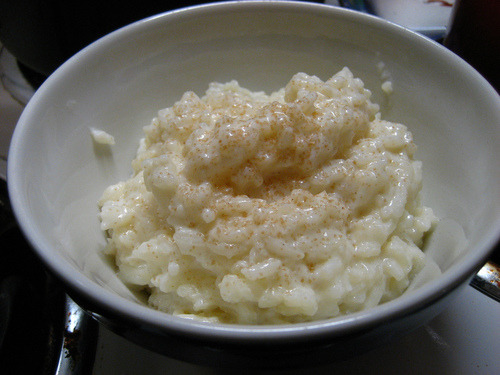Rice Cake Pudding and Jello
Shortly after my college days I interviewed and was hired at a church roughly two hours from where I grew up. When I originally heard of the open position and the town it was located in, I remember thinking, “I’ve never heard of this place.” In my first attempt to visit this large town/small city, I found myself following the most bizarre route in getting to this place. Geographically separated by two mountain ranges, no highways, no airport this small city was simply a blip on the map. Throughout my life I had traveled within an hour of this place almost in a complete circle around this city, but never having gone to this city. Now, for the first time I found myself in this bizarre place. After having been on staff for one week, a significant family in the church, invited me to their home for dinner. The evening began with some odd conversations and even more bizarre food. As I sat waiting for my meal, the family sitting around the table explained that what we were about to eat was a regional and family favorite, “rice cake pudding!” Never having heard of rice cake pudding, I was intrigued. However, not for long. As the rice cake pudding was placed on the table, its look was like something you clean up in aisle ten at the grocery store. Being the good guest, I tasted and ate. Fighting to hold back the gag reflex I endured through the main course. Thinking I was home free, dessert came next. Now before my eyes, was a Jello mold containing embedded rice and pickled pig’s feet. Wow, I had no idea I left earth and went to a different planet.

This past week while reading Guns, Germs, and Steel: The Fates of Human Societies by Jared M. Diamond, I was struck by how geography has played such a significant role throughout history in the forming of a society, it norms and even more so it’s food production and culturally relevant food consumption. The following are three keys which emerged while reading Diamond’s seminal work.
3 Keys To Geography and Food
Accessibility… Geographically all societies have strengths and limitations. Take the modern state of Israel. Their strong in the fact that they have two major ports in Haifa and Elat, located on the Mediterranean and Red Seas. Their glaring weakness, fresh water! In fact, due to their geography fresh water is almost nonexistent. Raining approximately only one week of the year during January, the average yearly rainfall is less than an inch. Most cultures, due to their limitations gravitate towards what is plentiful. And remember, if you go to Israel, Baklava is a strength!
What We Know… Humans by nature can often be creatures of habit. Geographical and cultural norms can carry strong societal peer pressure, subtly influencing the traditional norms. Change can be difficult for many. Parallel to these norms is the reality that many simply enjoy the existing forms. I few years ago, I had the privilege of studying in South Korea. During my time in South Korea I was able to eat their cultural dish known as kimchi. Now, I know there are some of you who love this food, and I certainly don’t want to offend you… but, wow. After a few days in South Korean culture, I realized, it’s what they know.
Location, Location, Location… Your location and geography is essential to the amount of outside influence and exposure to crop possibilities and culinary options. While serving in this first ministry, restaurant options in town were few and far between. The Chinese buffet in town was considered an exotic experience. Geography provides opportunity or creates barriers. Where we are located matters. It’s significant in the amount of cultures we rub shoulders with, different languages we hear and even the types of foods which are culturally acceptable.

That night at the table of these people from the church, I learned a small distance in geography on the map can make a large difference in how society has developed. What are your geographical limitations where you live? How has it shaped you?
Leave a Reply
You must be logged in to post a comment.